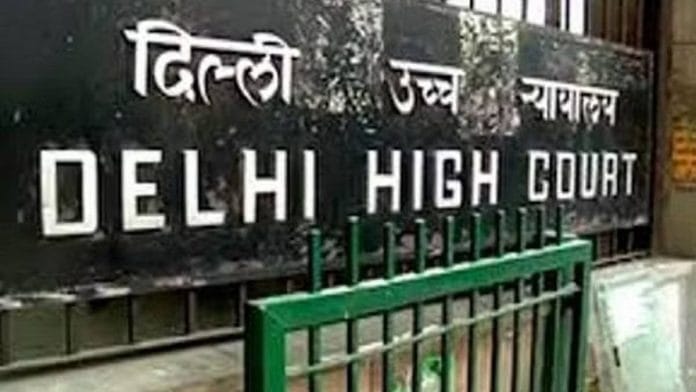New Delhi: In a bizarre turn of events, the Delhi High Court is likely to pass a ruling allowing anybody to import Salman Rushdie’s book The Satanic Verses, banned from being imported into India in 1988. The reason for this relaxation? The Central Board of Indirect Taxes & Customs (CBIC) cannot locate the original notification that banned its import.
The Delhi High Court has been hearing a writ petition filed against the CBIC in 2019 challenging the constitutional validity of its notification banning the import of The Satanic Verses. The book had been banned for import over its alleged blasphemous content.
In the plea, petitioner Sandipan Khan asked the court to issue a writ declaring that the CBIC’s 1988 notification (No. 405/12/88-CUS-III), dated 5 October and released on 6 October, 1988, to all state governments and Union territories to ban the import of the The Satanic Verses, was ultra víres, or “beyond the powers” of the Constitution of India.
The problem facing the CBIC is, however, not the constitutional validity of the notification—it is locating the notification in the first place.
The matter first came up for hearing on 6 May, 2019. After six adjournments without the matter being heard, the court on 10 May, 2022, informed the counsel representing the CBIC that he was being given a “last and final opportunity to produce the impugned custom notification”.
On 8 September that year, the lawyer representing the CBIC asked for more time “to take instructions and produce the relevant notification which is relied upon by the respondent (CBIC) for preventing the petitioner from importing the book in question”.
Then, in November 2022, the court observed that the counsel for CBIC “states that the notification dated 05.10.1988 is untraceable and, therefore, cannot be produced”.
“He seeks a final opportunity to make efforts to trace the said file,” the court said. “The respondent shall also file an affidavit as to the procedure to be adopted, in case statutory notifications are lost or misplaced.”
Yet, the next time the matter was heard on 11 January, 2023, the respondents still hadn’t managed to locate the notification and asked for still more time.
On 24 May this year, the court heard the matter again. This time, the CBIC stated on record in an affidavit that it could not locate the notification. However, it failed to produce the affidavit the court had asked for that would state what is to be done if statutory notifications are lost or misplaced. The court was stern about this lapse.
“We are informed by the counsel for the petitioner that it is the stated stand of the respondents, on affidavit, that the said notification is untraceable,” the court noted. “To be noted, coordinate bench, via the aforementioned order, had directed the respondents to file an affidavit indicating the procedure to be adopted if statutory notifications remain untraceable… one last opportunity is granted for this purpose.”
The final hearing in the matter took place Tuesday and the final order is yet to be uploaded on the website of the Delhi High Court.
ThePrint has learnt, however, that the court has said that since the notification cannot be located, it is rendered infructuous and that the petitioner and anybody else is allowed to import The Satanic Verses.
This report will be updated once the final order is released.
(Edited by Nida Fatima Siddiqui)
Also Read: Over 30 years later, why Salman Rushdie’s The Satanic Verses remains so controversial






